The country of revolution, protest and long holidays is going through another economic crisis, debt is rising – and dissatisfaction has hit an all-time high.
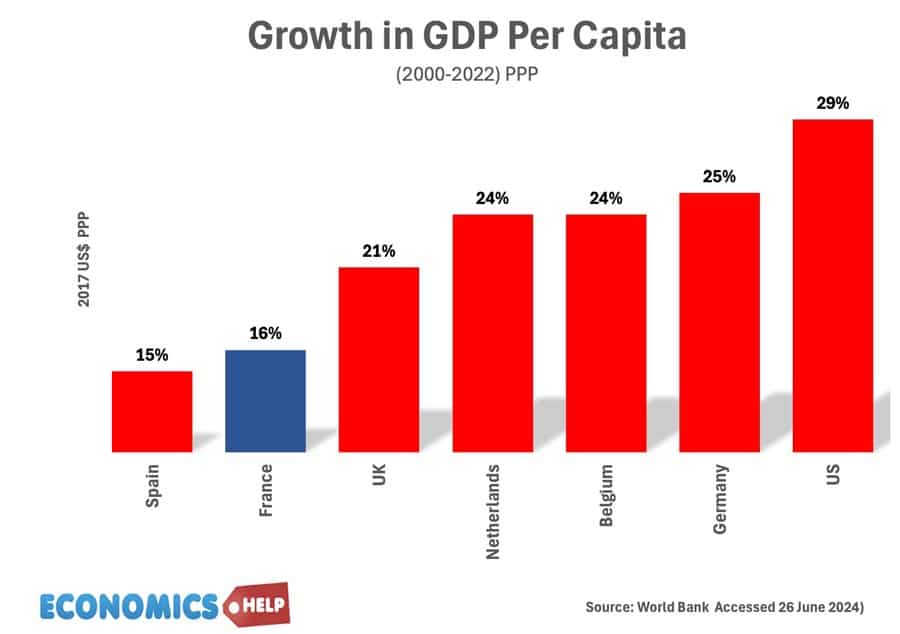
In the past 20 years, growth in France has slipped behind similar countries, reflecting long-term economic problems, but it is the past two years of inflation and stagnant real wages which have really caused frustration to soar. The French have become even more pessimistic than Brexit Britain. And worse could be set to come as commentators warn of a Liz Truss Moment, should new elections lead to extravagant tax cuts and more government spending. But, is it really as bad as the headlines suggest? And can France continue to afford its unique model of long-holidays, retirements and a generous welfare state?
In the early 1980s, Francois Mitterand reduced the retirement age from 65 to 60. A long retirement became a sacred cow of French politics. And why not? life is more than GDP statistics, it is to be enjoyed and appreciated and the French are proud of their balanced approach to life. A typical American works 20% longer hours than a French worker and When an American retires, he can expect 16 years to enjoy retirement, but a French worker can expect 25.
Retirement Age
When Macron increased the retirement age from 62 to 64, it was opposed by 80% of the population, leading to mass street protests. When the UK proposed raising the retirement age to 67 by 2028, it was met with barely a shrug. Unsurprisingly France spends 13% of GDP on pensions, the third highest in the world, and well above the global average. The pension is the 7th most generous in Europe with pension levels 192% above costs. This is before low birth rates and an ageing population increased the share of old people in France. France has an extensive welfare state, free health care and considerable state investment in everything from industrial policy to a high-speed rail network. In rail, France ranks 4th in the world, a sharp contrast to the UK’s struggles to build the 60 mile HS2. Yet, all this state intervention and generous welfare does come at a cost. French debt as a share of GDP has been rising and is forecast to rise. It is one thing to borrow for public investment because it can increase growth and improve tax revenues, but to borrow for pensions is a different matter. But, with economic growth slowing down, can France keep affording its luxurious approach to life?
Tax the Rich
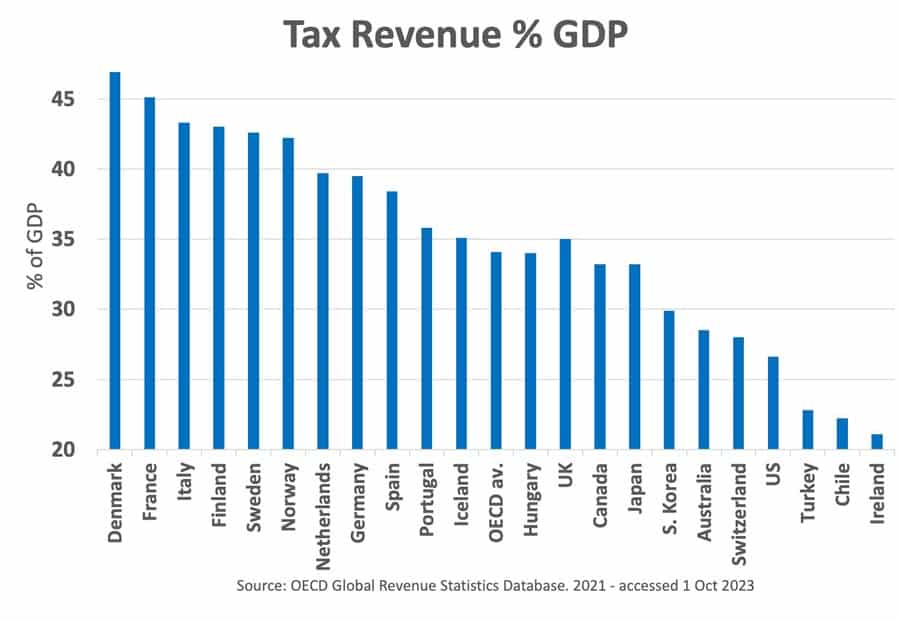
France is the land of liberty and egalite, and Thomas Picketty, the best-selling author of Capital, an account of how the wealthy have got ever more wealthy. There is strong support in France for the idea that pensions and the state should be financed by taxing the wealthy. Yet, even if considered desirable, past efforts have proved less successful than anticipated. In 2012, President Hollande imposed a 75% top rate of income tax but it was later dropped after raising meagre sums and encouraging high-income earners to emigrate to Belgium. France already has the second highest tax rates in the OECD and is relatively egalitarian compared to other countries in the OECD. There is a limit to how much taxing the wealth will solve France’s problems.
Lower Growth
The really big issue facing the French economy is long-term growth and productivity. Since 2009, 2,500 factories have closed down and the industrial sector has shrunk. There is an old joke about French competitiveness that “made in France” means Spanish quality at German prices, this is somewhat outdated, but smaller French firms have found themselves squeezed by higher volume low-cost Chinese firms and big US tech giants, who have left Europe in the lurch. At the turn of the century, France was a net exporter, but now it runs a trade deficit with the Eurozone and has seen its global market share fall from 5 to 2.5%.
Pessimism
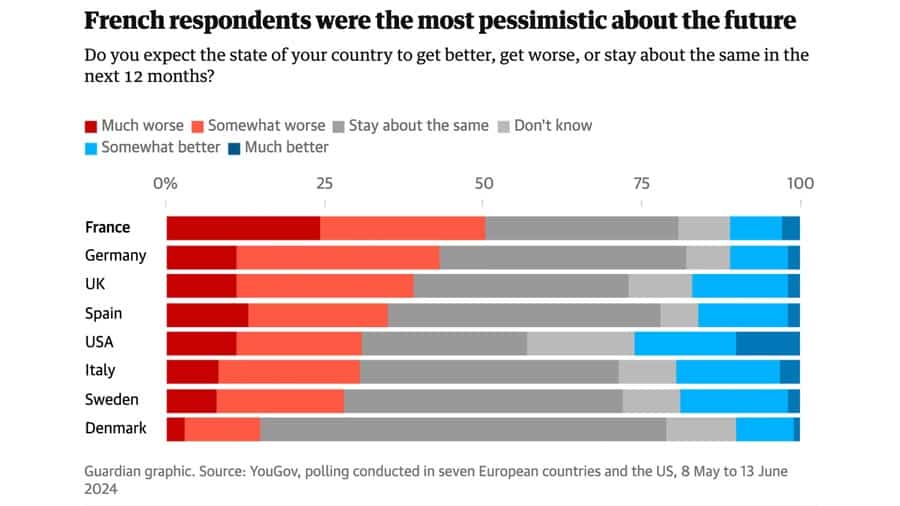
The French are certainly pessimistic about the state of the country and economy. Le Monde reports that the three most common words the French use to describe themselves are Mistrust, weariness and gloom. 40% proclaim they are distrustful and have one of the highest fear of being burgled. In Germany the dominant feeling is serenity. 70% lack confidence in politics, compared to 55% in Germany. The French have a mistrust of politics and the highest support for the army running the country (23%) compared to 14% Germany.
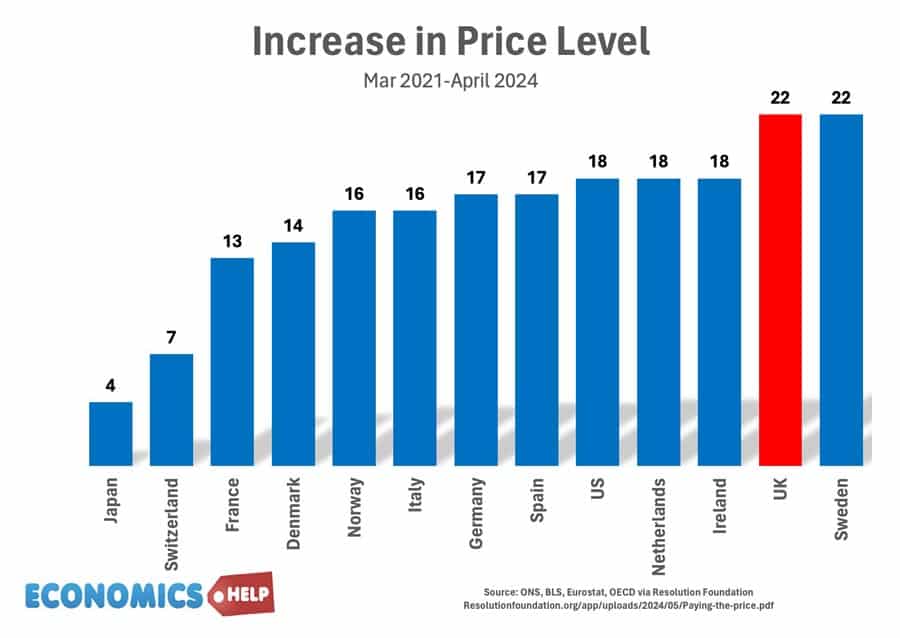
Yet, the irony is that when it comes to inflation, France had one of the lowest price rises in Europe. A large government subsidy kept energy prices rises down, and also increased the budget deficit. Yet, despite massive intervention to avoid the worst of inflation, the overriding sensation is stagnation of wages. A third of French people feel they are worse off than their parents at the same age, and stagnant ages has encouraged greater concern about immigration levels. yet, despite the rise of the populist right, the desire to leave the EU remains low, no doubt influenced by Brexit.
Positive signs in France
Despite the gloom, there are also signs of progress, helped by generous state aid, France has attracted four major giga battery factories in the former industrial heartlands of the north-east, it will make France, Europe’s biggest battery manufacturer. The Economist notes how behind the masks of protest, France has some impressive statistics. Thanks to nuclear power, it has the lowest carbon intensity of its electricity. It was singularly unfortunate that in the 2022 Ukraine crisis, France’s nuclear power stations were undoing maintenance. Poverty levels in France are significantly lower than the rest of Europe. France has the highest rates of nursery education. Even unemployment, the once great disaster of French economic policy is in decline.
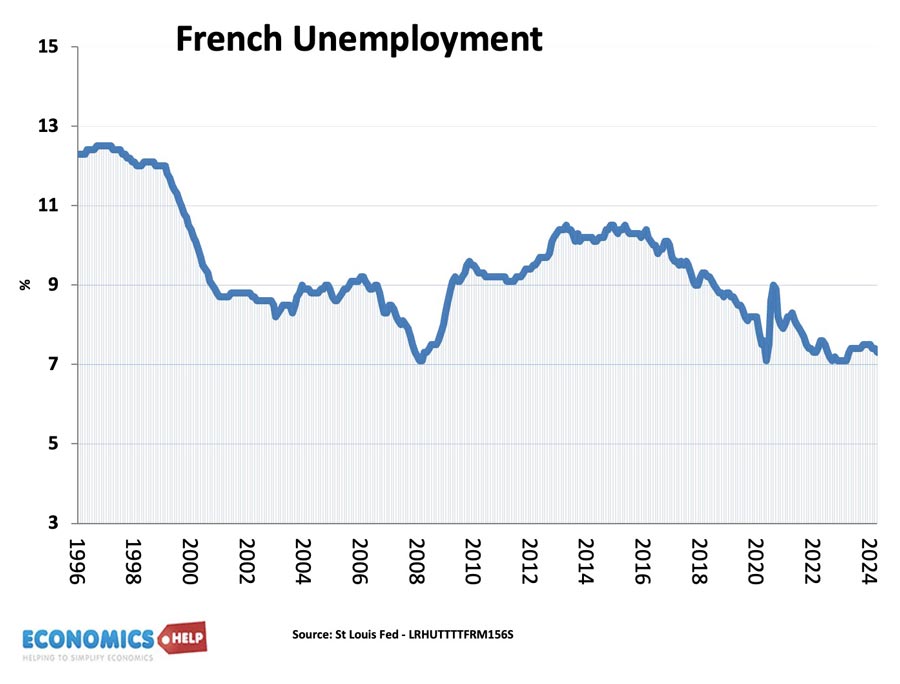
Peaking at 12% in the mid-1990s, it has now fallen to 7% and is forecast to keep falling. According to the national statistics bureau. 68% of people aged 16-65 are in work, the highest rate since 1975. The French recovery may have been significantly aided by the state and even propped up some zombie like firms and unproductive jobs, the main issue is the French economy has become better at creating jobs, even if more are at national minimum wage levels. France is even attracting foreign investment projects there has been a 70% since 2014.
Yet, despite this relatively good news it has done little to lift the gloom around the French economy with cost of living shocks still reverberating. It has led to voters toying with political choices that will lead to a splurge of spending and lower taxes. Both the far left and far right have policies which will widen the budget deficit to levels which have got commentators worried about a French version of a Liz Truss moment.
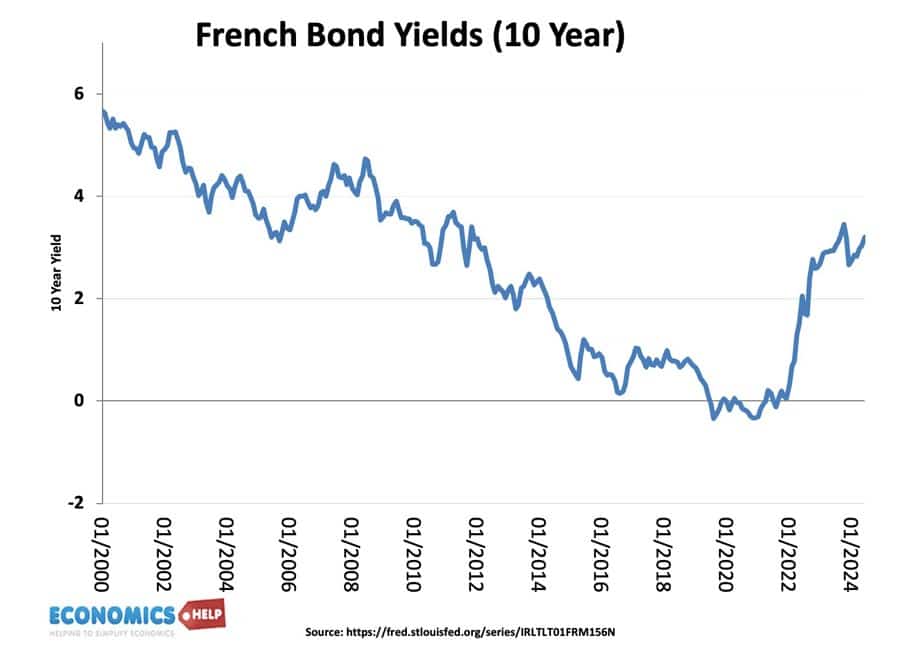
French bond yields have climbed in recent years, and given French debt of 111% was similar to Italian levels just before the Italian debt crisis, it might only take a disastrous budget to push the French economy into a real crisis.
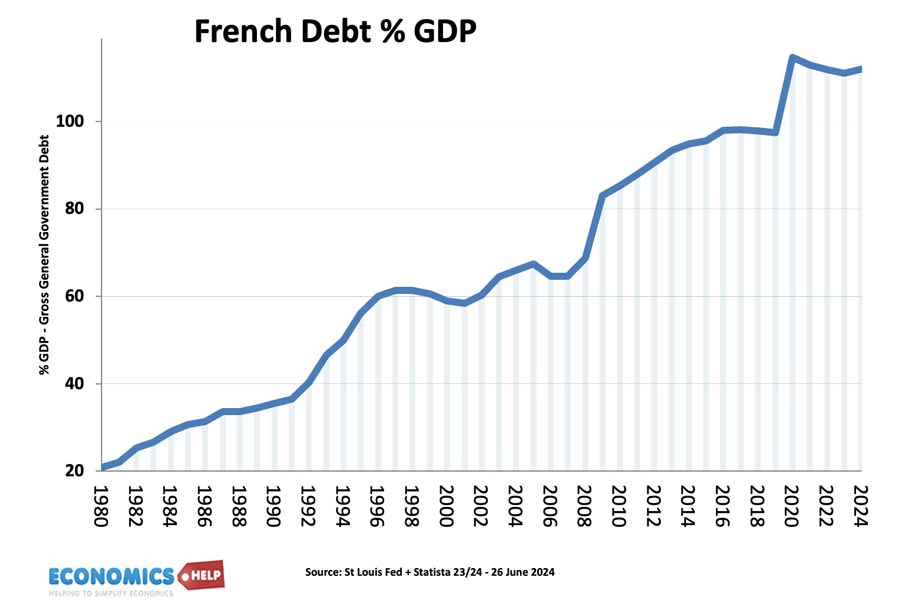
The truth is the French economic model is under threat.
Related
